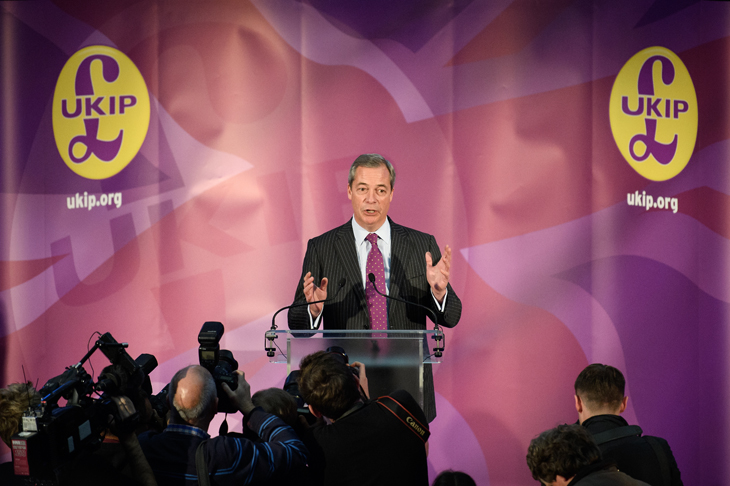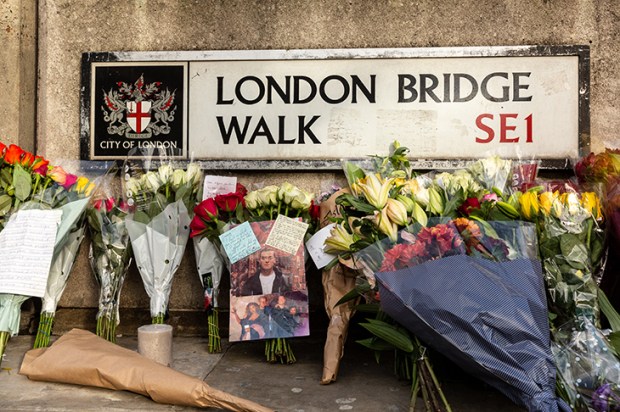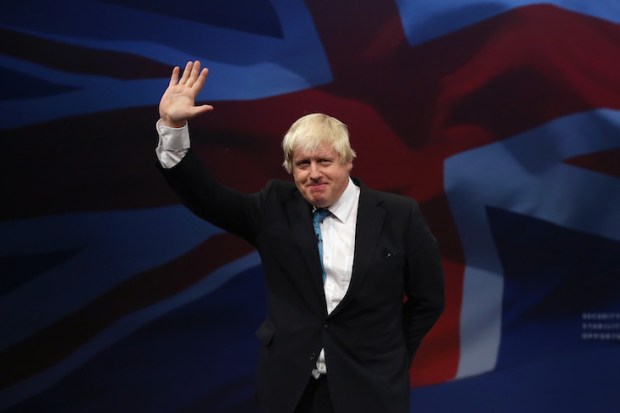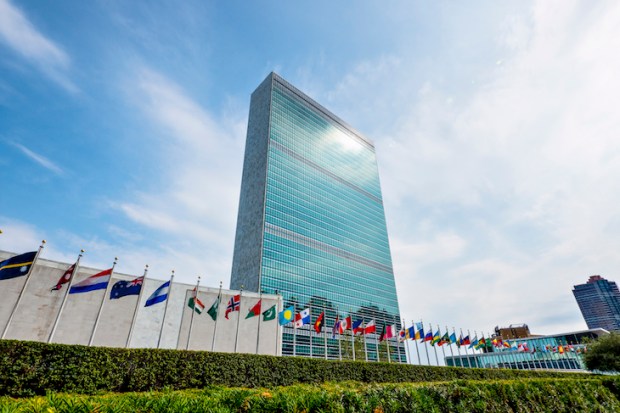Perversity is a much undervalued British trait, much more redolent of our real psyche than queuing, drinking tea or being tolerant of foreigners and homosexuals — all things for which we are better renowned. Seeing Dunkirk as a victory was magnificently perverse. So, too, was electing a Labour government in 2005 shortly after we had invaded a sovereign country and created a civil war. For ‘perversity’ I suppose you could read ‘complexity’, although the two often amount to the same thing. Our reactions to stuff are never as straightforward as they should be — they are complex and therefore can seem perverse.
And so it is right now. For three years I have been banging on, boringly, that Labour faces the same sort of annihilation in its north of England (and indeed Midlands) blue-collar redoubts as it suffered in Scotland at the hands of the Scottish National Party. A liberal metropolitan party, out of touch with working-class voters and led by a clown-shoed moron, would be wiped out north of the Trent, I insisted. And so indeed it may well be.
But wiped out by whom? The obvious answer was Ukip, under Nigel Farage. Ukip at least championed the socially conservative values and anti-immigration, patriotic impulses which the northerners, including me, rather liked. Even if the redistributive and communitarian impulse wasn’t there, at least a good few boxes were ticked. So Ukip to gain and maybe the Tories too, an analysis seemingly reinforced by the glory of Brexit — yet another reason for northerners to vote Ukip or Tory: our antipathy to Brussels and what it stood for. And now we have the Copeland and Stoke-on-Trent Central by-elections in which to test such a thesis. The upshot may well be truly, Britishly perverse.
In the first council by-elections of the current year, the people of Sandhill in Sunderland went to the polls. A city that had voted 60 per cent for Brexit and was perhaps the first indication on the late evening of 23 June of the maelstrom that was about to engulf our ruling elite. And how did they vote? They kicked out Labour, as predicted — and put a Lib Dem in. Labour’s vote share was down by almost 30 per cent, the Lib Dems’ up by a staggering 42 per cent. And Ukip? Down 7 per cent. How perverse is that? On the same day, in the part of Hertfordshire covered by Three Rivers district council, which voted Leave by about the national margin, there was another council by-election — Lib Dem gain once more. Lib Dem vote up by 24 per cent. Labour down by 10 per cent. So what’s going on?
Complexity, at least. When the Libs were jubilant about their success in the Richmond Park by-election, I wasn’t impressed. Liberally minded constituency, massively in favour of Remain, votes Liberal Democrat when no official Tory candidate is standing. Big deal. But Sunderland and, to a degree, Hertfordshire presage something very different, even if I’m sure local factors played their usual important role.
I do not think, as some Remainers will no doubt proclaim, that the revival of the Lib Dems is the consequence of some sudden repentant impulse in the untermensch, concluding that Brexit had been too hasty and cavalier a decision. But it may well be that nevertheless a strong Liberal Democrat revival is underway, especially in the north of England. A little like the Lib Dem advances in northern cities some 25 years ago, which turned Newcastle, Sheffield and even Liverpool yellow for a while (and were the reason Nick Clegg was able to win Sheffield Hallam). They happened because the traditional party of these regions, Labour, was seen as both ossified locally and un-electable nationally. In most cases the electorate could not bring themselves to vote Tory, so they went for the protest vote.
And much the same may be happening now. In a sense, Brexit was more a protest vote than a rejection of the EU. I do not think that the average voter north of the Trent feels terribly strongly about the EU. But many do dislike the political establishment — and it may be that the Lib Dems’ annihilation in 2015 now counts in their favour. Tim Farron, another clown-shoed moron, is palpably not the establishment, and therefore OK. Corbyn is rightly considered a congenital idiot and more averse to the views of the northern voters than the Lib Dems by a factor of about 50. And so, given little alternative, they vote, perhaps reluctantly, Lib Dem.
But what of Ukip? The problem now is its utter invisibility: the political caravan, with its cretinous yapping dogs and retinue of anguished experts, has moved on. Nothing which happens henceforth over Brexit helps Ukip, unless a complete government volte-face is on the cards, which it isn’t. Nigel Farage thrived when his party was clearly an alternative to the established order — and the constant tales of individual lunacy within the party and accusations of racism did not remotely hinder that perception. Only invisibility hinders that perception. And leader Paul Nuttall, good man though he is, needs to address this sharpish because his party has become sidelined and, with a wonderful irony, the Lib Dems are reaping the reward. Expect to see the Lib Dem vote up hugely in by-elections over the next year or so, especially in the north of England. But don’t expect it to mean very much, ideologically.
And Copeland and Stoke-on-Trent Central? Nuttall has risked all by standing in the latter, where his party came second last time. If he doesn’t win, that may well be it for them. The Lib Dems will continue their revival in both seats, but win neither. My guess is that with a decent candidate, a quiescent Ukip and a split vote, Labour will just about hold Stoke. And the Tories will gain Copeland, again benefiting from an increased Lib Dem vote. How perverse will that be?
Got something to add? Join the discussion and comment below.
Get 10 issues for just $10
Subscribe to The Spectator Australia today for the next 10 magazine issues, plus full online access, for just $10.
You might disagree with half of it, but you’ll enjoy reading all of it. Try your first month for free, then just $2 a week for the remainder of your first year.















Comments
Don't miss out
Join the conversation with other Spectator Australia readers. Subscribe to leave a comment.
SUBSCRIBEAlready a subscriber? Log in